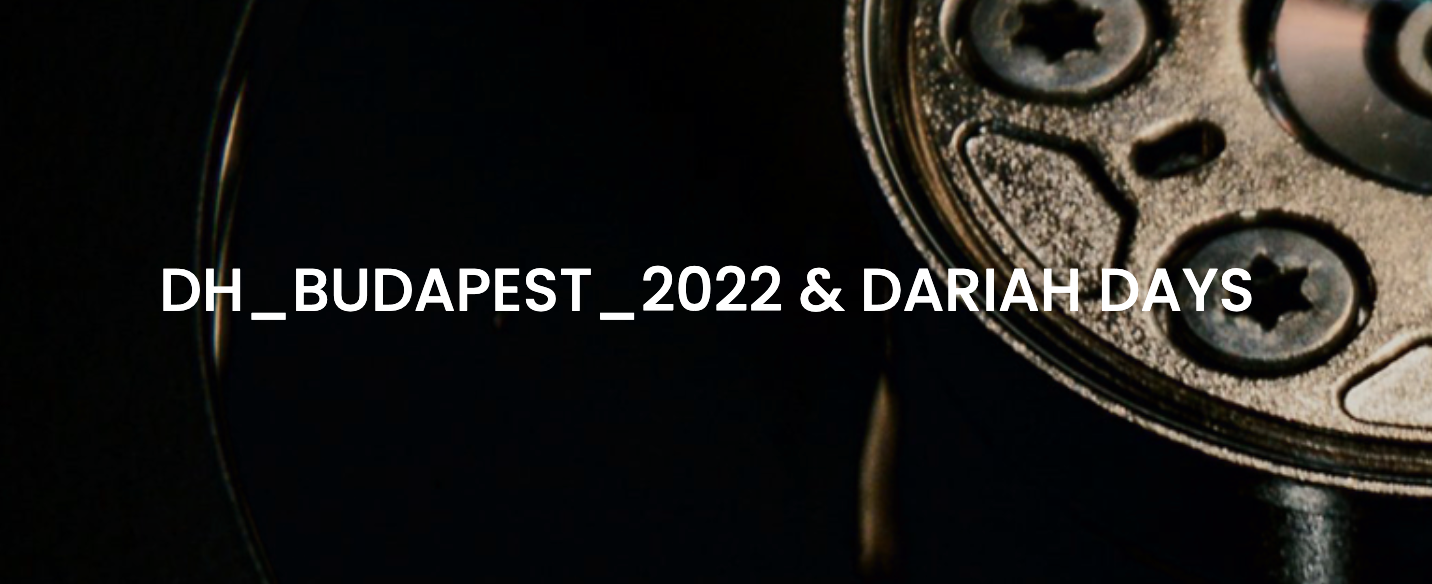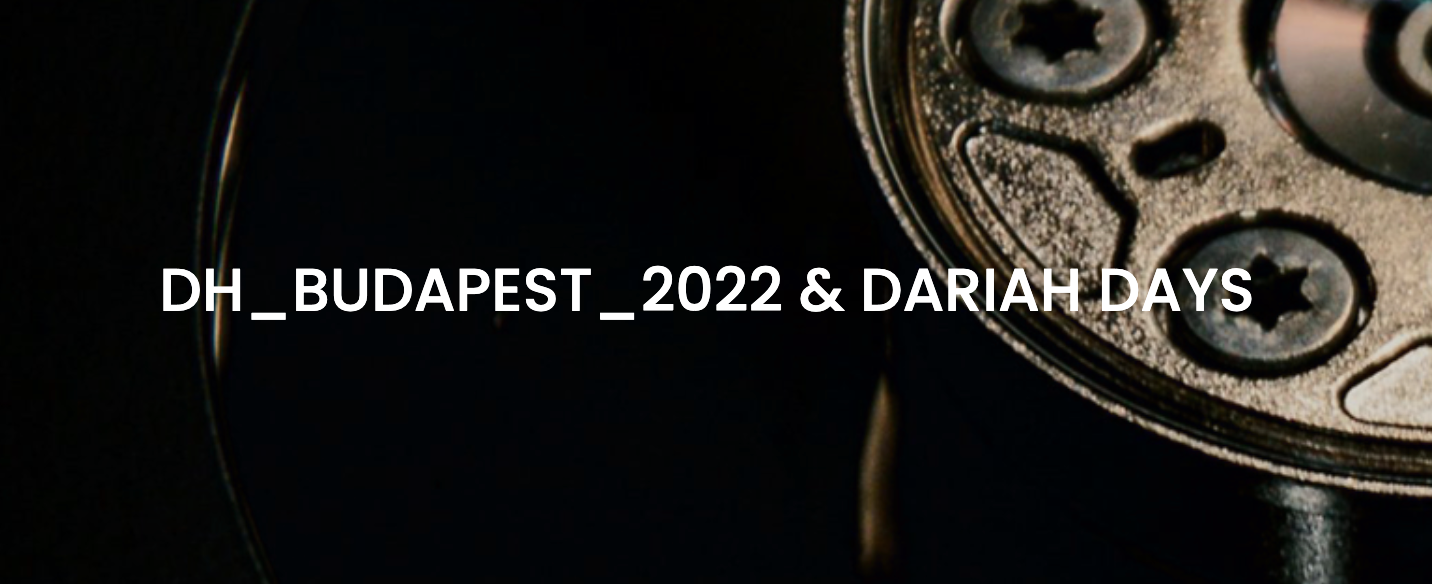DH_BUDAPEST_2022 & DARIAH Days
The Department of Digital Humanities at Eötvös Loránd University (ELTE.DH) calls for submissions for its 3rd annual conference which will take place in Budapest, 23–25 November 2022 – in collaboration with DARIAH. The 1st DH_BUDAPEST conference surveyed the current state of research in digital humanities in general, while the 2nd conference kept a narrower focus on theories and practices of distant reading. This year, DH_BUDAPEST_2022 aims to explore the topic of networks and networking.
Network as a metaphor has been a tool of conceptualizing phenomena for a long time in the humanities, yet, with the emerging availability of digital and digitized datasets, it also has become a tool of quantitative analysis and data visualization. Today, the terms network and networking are widely used in humanities-related research from the investigation of semantic structures through the circulation of ideas, people and artefacts to collaboration patterns of institutions. Further, researchers have raised novel questions of self-reflection in the humanities regarding the epistemological grounds and consequences of the usage of tools and techniques developed in the natural sciences.
We invite speakers to discuss the terms networks and networking from multiple standpoints at an international research forum; papers that use innovative, data-driven, computational methods are especially encouraged. We welcome submissions on subjects from a variety of fields related to digital humanities and social sciences concerning but not limited to the following topics:
Data linking and databases;
Semantic networks and the usage of the semantic web;
Research groups and connections in the field of digital humanities;
Data visualisation in scientific research;
Prospects of network analysis in the humanities;
Theoretical approaches to networks and networking.
DH_BUDAPEST_22 is organised in collaboration with DARIAH. The event incorporates a series of programs called DARIAH Days, which include roundtables, panel discussions, and workshops. DARIAH Days provide an opportunity for researchers and institutions to engage and build connections with others from the field of Digital Humanities.
Presentation categories:
Individual presentation
Individual presentations are suitable for presenting current research or completed but previously unpublished research concerning theory, methodology, or project outcomes. Papers with a concrete and distinguishable digital humanities research question and/or approach are encouraged. Instead of presenting large DH projects, we encourage speakers to focus on a relevant scholarly research question, methods and solutions based on or inherent in the project. The 20-minute presentations will be followed by a 5-minute Q&A.
Poster
Poster presentations are intended to demonstrate projects and ongoing research, ‌they provide an interactive opportunity to exchange ideas one-on-one with the attendees. During the poster session, participants can introduce their posters in 5-minute presentations, after which attendees are able to further examine the posters and address the presenters with questions. Posters are required to be in A1 paper format, and can be aligned either vertically or horizontally.
REGISTRATION:
The deadline for submissions is 15 June 2022 15 July 2022. Presenters will be notified of acceptance by 30 June 2022. Abstracts of 300-500 words and a short bibliography can be submitted via EasyChair. Please also indicate the type of your proposal (individual presentation or poster) and provide 3-5 keywords relevant to your project. Similar to the previous conferences, the abstract booklet will be published in Open Access form.
The ten most innovative and prominent speakers of the DH_BUDAPEST_2022 conference will be inquired to submit their papers, which will be published as a regular issue in the International Journal of Digital Humanities published by the Department of Digital Humanities in association with Springer Nature.
Program Committee:
Director
Gábor Palkó
(Centre for Digital Humanities, Eötvös Loránd University, Budapest, Hungary)
Members
Dávid Bartus
(Dean of the Faculty of Humanities, Eötvös Loránd University, Budapest, Hungary)
Maciej Eder
(Director of the Institute of Polish Language at the Polish Academy of Sciences, Pedagogical University of Kraków, Poland)
Gábor Kecskeméti
(Director at Research Centre for the Humanities, Institute for Literary Studies, Budapest, Hungary)
George K. Mikros
(Department of Middle Eastern Studies, Hamad Bin Khalifa University, Qatar)
Thorsten Ries
(Department of Germanic Studies, University of Texas, Austin, USA)
Christof Schöch
(Center for Digital Humanities, University of Trier, Germany)
Gábor Sonkoly
(Institute of Historical Studies, Eötvös Loránd University, Budapest, Hungary)
Zoltán Szatucsek
(Director at National Archives of Hungary)
Toma Tasovac
(Belgrade Center for Digital Humanities, Belgrade, Serbia)
Kees Teszelszky
(Koninklijke Bibliotheek – National Library of the Netherlands, The Hague, the Netherlands)
Erzsébet Tóth-Czifra
(Open Science Officer at DARIAH-EU, Berlin, Germany)Â
Contact:
Department of Digital Humanities
Eötvös Loránd University Múzeum krt. 6–8.
H-1088 Budapest
Hungary
E-mail: [email protected]


